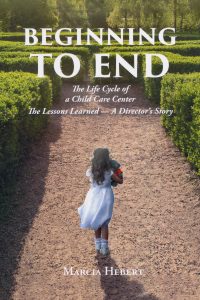
In my book, Beginning to End: The Life Cycle of a Child Care Center—A Director’s Story, one chapter is devoted to building a community throughout our early childhood program. The children, their parents, and our teachers are that community. And they have been likened to a three-legged stool. If all three legs are balanced—if the children, parents, and teachers trust and respect one another, work effectively together, and create, together, rich experiences and a best-practice early childhood program—then, that three-legged stool stands solidly. If anything gets in the way of building this community, however, the stool topples.
If anything is to go awry, it is usually the relationship between parents and teachers. So, how do we cultivate a climate in our programs, from the beginning, where parents feel welcome and relevant in our child care centers.
It begins with written beliefs about parents. From our programs’ core beliefs:
We believe that parents should:
- feel welcome arriving, visiting, and observing;
- have confidence and trust in our program;
- be informed about the program and their child’s daily experiences;
- know that our program provides a safe and secure environment for their child;
- know that their child receives personal, individualized care;
- know that their child fits in and is liked by staff and children;
- know that their child is cared for in an environment absent of bias;
- be respected;
- have a sense of control over their child’s future;
- feel free to ask questions of staff;
- have their values and beliefs sought out and respected;
- know that the program is sensitive to their concerns;
- have an opportunity to contribute;
- know that matters involving the welfare of their child are treated confidentially;
- feel good about themselves as parents;
- take pride in their children;
- have a sense of themselves as educators; and
- have their expert knowledge of their own child respected.
For parents, it is our child care center’s responsibility to:
- provide daily information to parents;
- encourage parents’ questions and opinions;
- seek out parental desires and concerns;
- promote a full partnership between parents and staff;
- invite parent input into the programs; and
- keep matters relating to child and family confidential.
The relationship begins and ends with this set of core beliefs. This is how we will work with parents, and this is how parents expect us to be. They have come to us having read our mission statement about young children. They have come to us having read our vision, and this set of core beliefs. This is what they expect to see, hear, and feel. Our job is to put these words on paper into action – and position that three-legged stool firmly in place.
For more on this topic, take a closer look at Beginning to End: The Life Cycle of a Child Care Center—A Director’s Story, available on Amazon.com.
